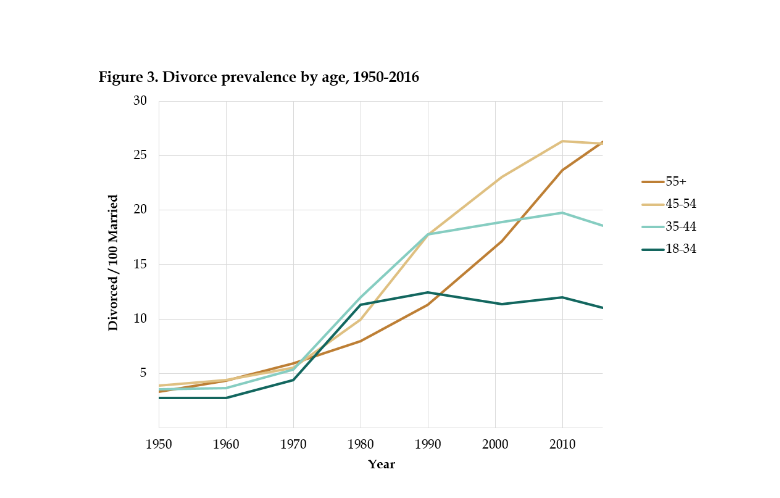Americans are giving more to charity now than ever before. $410 billion in 2017, a 5 percent increase over the previous year and the highest amount ever. Charitable giving is up across multiple income levels and in most demographics.
People are Giving Less and Less to the Church
Only 32 percent of the total given to charities goes to a local church, and that number has steadily declined over the last two decades. Giving to churches is down across the board.
You can dive deeper into these numbers by reading this Blackbaud report, but here’s what it means for your church.
People are diversifying their giving, prioritizing other nonprofits over their local church. They are giving to the humane society, GoFundMe campaigns and fundraisers for chorus trips.
This poses a fresh challenge.
When it comes to money and the church, things are changing.
Churches who are on the front end of this change will be poised to grow, while churches who neglect these shifts may start or continue to struggle with financial health.
Here are the five shifts that I think leaders need to make in regard to how we talk about money in the church.
#1 – Shift from just preaching on giving to preaching on money.
When you think about preaching a sermon on money, what topics come to mind?
We asked pastors to share their actual money sermons and then analyzed them for content.
Eighty-three percent of the messages were focused on giving.
Even when broader topics like stewardship, contentment or financial health were mentioned, the lion share of these messages made giving the foundational topic or the clear call to action. These weren’t money sermons; they were giving sermons.
There is nothing wrong with preaching a giving sermon, and generosity is certainly an important component of being a good steward. But preaching on giving is not the same as preaching on money.
If you want to lead a financially healthy church, you must address broader money topics than just giving. Definitely keep preaching on giving, just don’t forget to preach on money.
Your sermons on money must provide practical and tangible help. You need to talk about spending, debt, contentment, saving, stewardship, communication, faith, trust and so much more. People need help and hope, not just a challenge to give money to the church or advice on how to get out debt.
When you adopt a helpful posture like this, you don’t have to apologize for talking about money in church.
The people in your church are bombarded with unhealthy financial advice. They are marketed to by every facet of society. Unless they have a Christian financial planner, they won’t hear about wisdom with money anywhere else.
If you don’t talk about wise financial principles, who will?
That’s why our team is working on practical financial tools to help you teach wise financial principals to your church.
There’s so much more than “give the tithe” and “get out of debt.” The churches who help their people be wise with money will be much better positioned for financial health.
#2 – Giving means more than giving money.
When you say the word “giving” in your church, what do you mean?
Most pastors, particularly Gen-X or older, mean financial giving.
But that’s not what everybody, particular Millennials, hear.
The Generosity Gap, a research study from Barna Study, released in conjunction with Thrivent, highlights the generosity gap that exists in churches.
Giving means different things to different people. Let me just highlight a few findings of the report, which is certainly worth studying.
- Financial giving ranks third on Christian’s list of most generous actions. For Millennials, it’s even lower. They rank hospitality as the most important act of generosity. That means when you talk about giving and generosity, people aren’t necessarily thinking about money.
- When people were asked “what’s the most generous thing a person could do?” people ranked “taking care of someone who is sick” much higher than “donating $40 to an organization.” Again, more and more people are not equating generosity with finances.
- Is it OK for church members to volunteer for their church instead of giving financially? Sixty-seven percent of pastors strongly disagree. But 40 percent of Christians strongly or slightly agree. In other words, there’s a big gap.
What does this mean for churches?
First, we need to use clear language. When we’re talking about financial generosity, we need better words than “give” or “support.” Consider the words you use and make sure they mean what they think you mean.
Secondly, we need to recognize that people are looking for broad ways to support organizations they care about. The research shows the people who give most financially are also most likely to serve or volunteer. Don’t limit giving choices to finances; look for ways to expand your approach.
#3 – Take care of your existing donors before you worry about attracting new donors.
How can we get more people to give?
That’s a common question we hear from many of the churches we serve. It’s not a bad question.
When it comes to church giving, the 80/20 principle holds true. Twenty percent of your people give 80 percent of all that is given to the church. That means there are a lot of people connected to your church who are not financially supporting the church.
They are attending. But they are not supporting, at least financially.
So it’s beneficial to develop a strategy to encourage people to cross the line of generosity.
But the very first thing you should do if you want more people to engage in giving to your church is develop a robust strategy of care for your existing donors.
It sounds counter intuitive, but the way you reach new people in this area is to serve your existing donors.
I’m not talking about the occasional mass thank you email or including some pictures with the year-end giving statement. I’m talking about a serious donor care strategy.
What specific things can you to do care for your donors?
- Start saying thank you immediately. Most people provide receipts and miss the first opportunity to connect a gift to the mission.
- Communicate regularly with your donor base. Communication is a form of appreciation. Talk to your donor segment differently than you talk to the rest of your church.
- Send gifts. Coffee mugs with your church logo or books that have been meaningful to your own faith are affordable and meaningful ways to say thank you to the people who support the church.
- Host a donor appreciation event. Bring in a speaker or throw a party. Don’t be afraid to do it well.
- Send hand written thank you notes. In a world of tweets and likes, old-school communication stands out. You can do this when someone gives for the first time, when someone gives an unusual gift, or for no particular reason at all.
- Make sure every donor has a “pastor.” A good pastor shepherds people, so make sure everyone who financially supports the church has someone who checks on their life, family and faith.
If you want to know more, download the free Senior Pastor’s Guide to Stewardship. It will walk you through several pastoral approaches to talking about money and managing money in a church setting.
#4 – Your church needs a funding plan as much as it needs a spending plan.
Once a year, finance teams and ministry leaders embark on a process of updating the budget for the new year.
Every church is different, but it’s not unusual for two or three months of reports, requisitions, comparisons and planning to be debated, crunched and ultimately presented to the congregation.
A lot of work goes into making a budget, the document that shows how all this money is planned to be spent.
You know what’s an afterthought in many churches?
Where the money is going to come from.
What would happen if we shifted some of the time spent on the budgeting process into time spent discussing funding options?
What would happen if your financial leaders took a posture of facilitating financial growth in addition to the posture of being guardrails to spending?
Finance teams need to have a perspective and give input on the revenue side of things, not simply serve as a watchdog of expenses.
This isn’t the job of most finance committees, but there are probably people in your church who could help you here. Find people with a growth mindset to help you process ideas and make real plans to facilitate generosity in your church.
If you’re a Church Fuel member, you’ll find an Annual Funding Plan template and a coaching video you can watch with your team. Just follow the plans we lay out for you and you’ll move your church forward in a big way.
Working on a funding plan is an important exercise that will help you proactively meet or exceed the budget.
#5 – More shifts are coming.
In the coming years, we will continue to see shifts in generosity in culture and in the church. That’s why the biggest shift you could make in your church is to prepare for uncertainty.
Many churches will see their financial base motivated to give to other (and more personal) causes, and harder preaching likely won’t change the patterns.
Alternative funding models will become more important to many churches as they consider ways to remain financially strong in the wake of decentralized generosity. Leaders will look for new ways to generate revenue from their facility or alternative funding strategies to pay staff.
There’s not a one-size-fits-all approach here but an imperative to stay open. There’s not a cause for fear, but there’s a greater reason to stay tuned into the trends and respond with strategy.
In the coming years, we will see more shifts, and the churches that are flexible and responsive will not only stay healthy but thrive.
What’s Next?
Feel like your church should be more financially healthy?
Ultimately, the financial situation in your church is up to God. It’s His church and you’re a steward. But He chooses to work through people and entrusts us to lead well.
This article originally appeared here.













